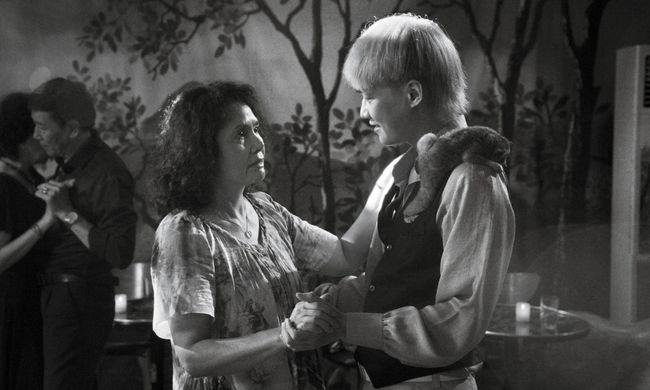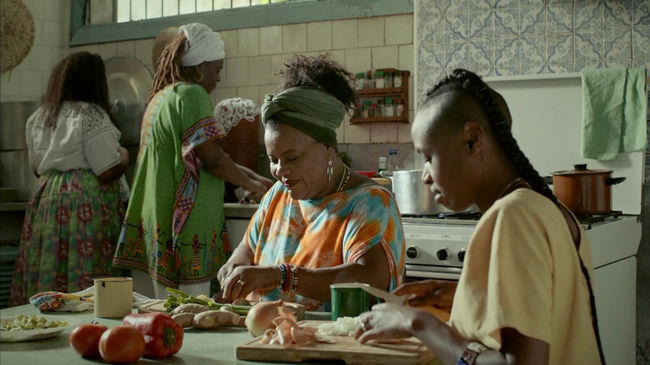'I want to make the invisible visible'
24 June 2020
Brazilian filmmaker João Paulo Miranda Maria was selected for Cannes 2020 with his first feature film Casa de antiguidades, supported by IFFR’s Hubert Bals Fund (HBF) in 2017. Then Covid-19 happened.
Brazilian filmmaker João Paulo Miranda Maria was selected for Cannes 2020 with his first feature film Casa de antiguidades, supported by IFFR’s Hubert Bals Fund (HBF) in 2017. Then Covid-19 happened.
"Of course it was a difficult moment when Cannes got cancelled," Miranda Maria explains in a video call from his apartment in France, "but now is not the time for glamour and red carpets. I wouldn’t have the stomach."
Despite not showing any films, the film festival of Cannes published a list of titles, including Casa de antiguidades, that will carry the label of Official Selection Cannes 2020 as they go on to premiere at other festivals. "I think they made the right choice," says Miranda Maria. "And we are absolutely thrilled to be on that list. It’s a way of saying: we want you to see these films. We can’t wait to show our film to audiences at other festivals." He doesn't think online festivals are the way to go. "I want to show my film in a theatre, not just because of the big screen and the sound, but because it’s where film belongs: in the temple of cinema. It's a communal experience, like going to a church.”
Future past
The film follows Cristovam, a native from the countryside of northern Brazil, who travels to the south of the country to work in a milk factory. There, he encounters an extremist right-wing group who want to separate from the rest of Brazil. The mood in the film changes when he finds a ‘memory house’, an abandoned, spiritual place which connects him with an ancient past, and gives him the power to fight back against the fascists.
I'm not religious, but when making a film, I see myself as a priest.
— Miranda Maria on his way of making a film
"My film is a revenge film," says Miranda Maria, "but it's so exaggerated, that it goes beyond the story and touches something invisible. It's like Bresson said, I want to make the invisible visible. I want to evoke something you’re not exactly hearing or seeing, something suggestive outside of the frames. I’m not religious, but in this way I see myself as a priest. I like to reach a sense of the ridiculous, to show something so strange that you arrive at genuine art."
The story is set in the near future, but the art direction echoes a style of the seventies, Miranda Maria says. "The film envisions a future, but a retro future. The past of the Brazilian dictatorship is being revived. It's incredible to see how my film connects to today's world, with the Black Lives Matter movement, and the deep division between conservatives and progressives in Brazilian society. I wrote the story in 2015, but the film deals with all this."
The first support I received came from the Hubert Bals Fund
— Miranda Maria
Financing in Brazil
For his debut feature-length film, Miranda Maria secured funding from overseas first, before receiving funds from ANCINE, the Brazilian Film Agency. "Our budget was around 2.3 million Brazilian real [around €400.000]. The first support I received came from the Hubert Bals Fund. Then followed Cinéma du monde. But because the film is set in Brazil and it’s in Portuguese, the majority of the co-production needed to be Brazilian. There’s a saying in Brazil that goes: you need to leave your home to make miracles. That’s what happened here. After the European support, Brazilian money followed. I’m very thankful it worked out that way."
This was several years ago. In recent years it certainly hasn’t become easier for Brazilian filmmakers. Mirana Maria: "It's so much more complicated in Brazil now, with Bolsonaro cutting budgets and dissolving the Ministry of Culture. For my next film, I’m looking to shoot in the Amazon rainforest. I've already started thinking about shooting in other Latin American countries instead. Maybe I'll even change the language. In a traditional co-production deal, you need to get the majority of the money from the country where you do the shooting. So I have to ask myself: how can I make a film outside of Brazil? Or how can I somehow bring more money in from outside and still make the film in Brazil? It’s a problem that most Brazilian filmmakers are facing. It’s one of the reasons I moved to France in 2019. Here it’s easier to find new opportunities."
João Paulo Miranda Maria has previously made the short films Command Action (2015), The Girl Who Danced with the Devil (2016) and Meninas Formicida (2017). His second short film won him a special mention at Cannes Film Festival. Casa de antiguidades is his first feature film.
Written by Daan Schneider
















